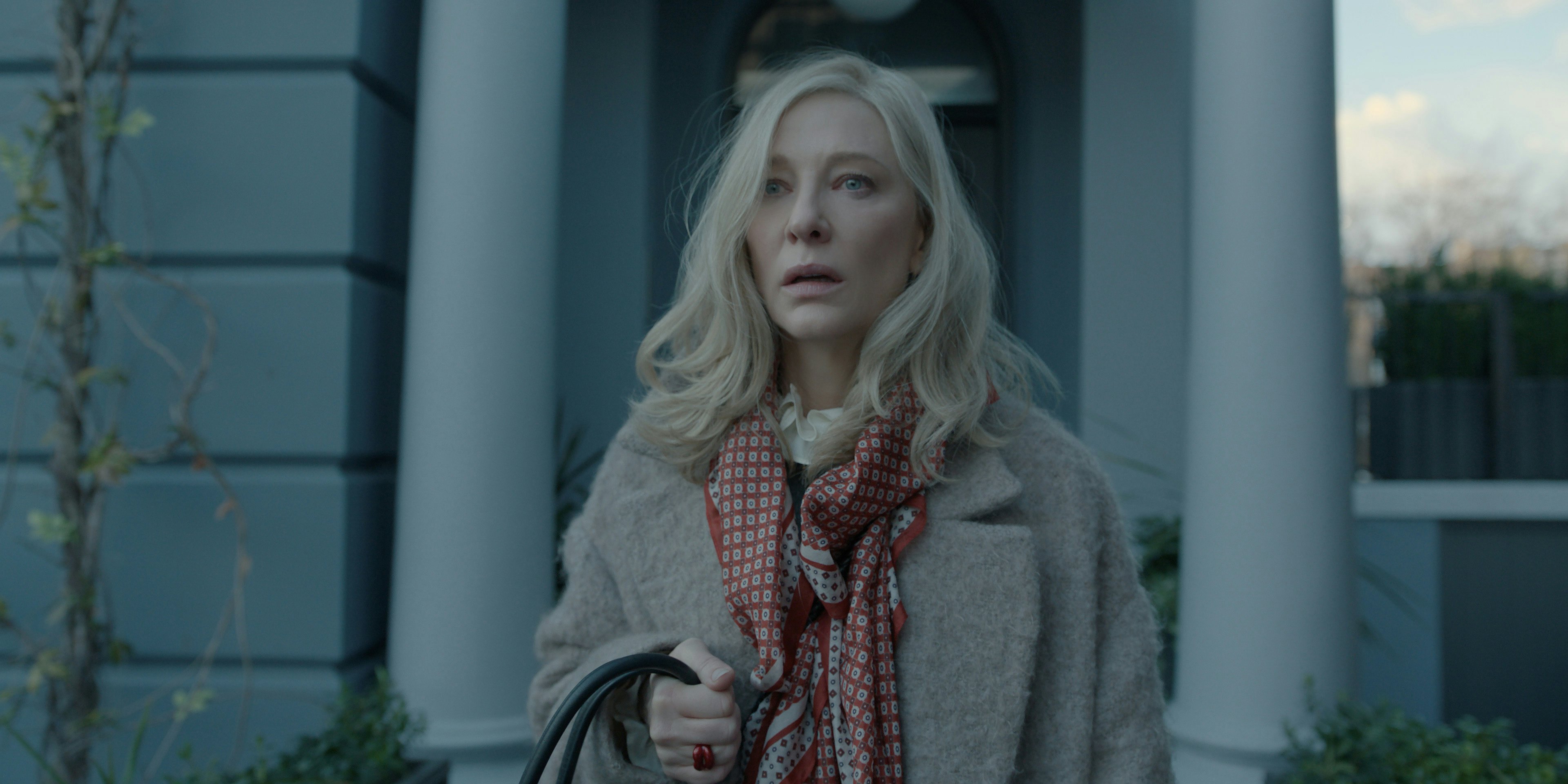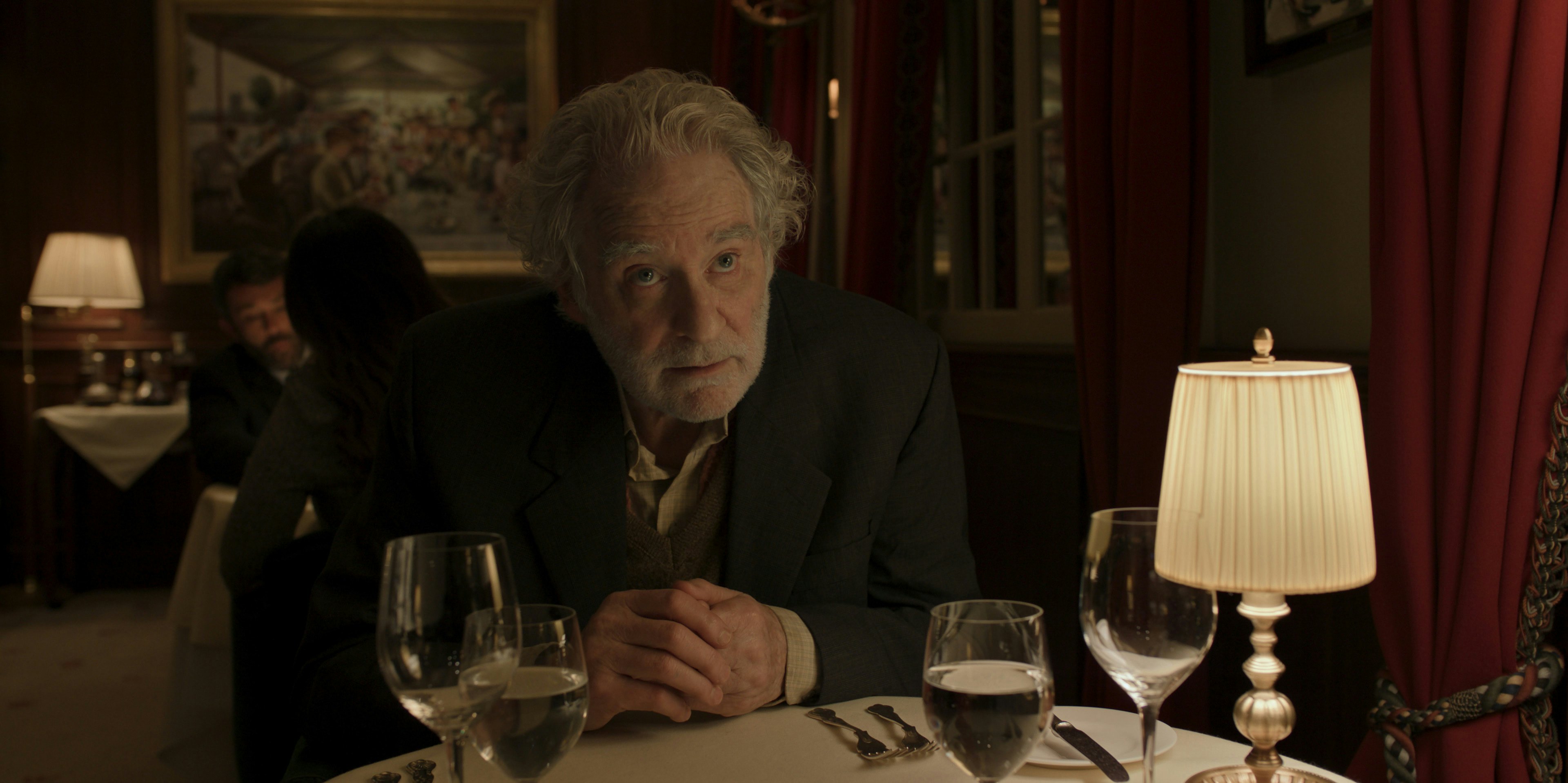
“Disclaimer: Any resemblance to persons living or dead is not a coincidence.”
That is the odd text at the beginning of a book that renowned documentary journalist Catherine Ravenscroft (Cate Blanchett) finds waiting for her in the mail. The book is called The Perfect Stranger, and, at first, it seems like a deliciously sordid piece of fiction perfect for paging through right before bed. But as she reads further, Catherine sits bolt upright and sprints for the bathroom, puking her guts out as visions of her younger self (played by Leila George), naked and writhing, flash onscreen.
It’s the first of many cryptic glimpses to the past that writer-director Alfonso Cuarón seeds throughout Disclaimer, a riveting psychological thriller that unfolds deliberately and carefully until its sordid surface crumbles away to reveal a devastating truth.
The mysterious book unlocks Catherine’s deepest, darkest memory kept buried for 20 years — a memory that is unclear even to the viewer until the show’s final moments. Stephen Brigstocke (Kevin Kline), a retired professor grieving the deaths of his son and wife, thinks he knows what memory she’s been keeping secret all these years: a steamy affair with his son Jonathan (Louis Partridge), who drowned shortly after he met Catherine on vacation in Italy. While cleaning out his long-dead son’s room, Stephen discovers lewd pictures of a young Catherine and a book written by his wife, who had crafted a whole story about Catherine and Jonathan’s apparent affair based on those images. Enraged that his son passed away while Catherine’s deadbeat son (Kodi Smit-McPhee) gets to live, Stephen begins an elaborate scheme to make Catherine suffer as much as he has.
In Cuarón’s first TV project, the Roma and Children of Men director appears to be working in a new genre. The erotic domestic thriller had its heyday with David Fincher’s Gone Girl before trickling over to TV with starry prestige hits like Big Little Lies and Sharp Objects. There’s always an element of soapiness underlying these stories, perhaps because of how central sex is to their flawed female characters’ and twisty storylines. Cuarón is certainly no prude, however — many scenes from Disclaimer seem to recall his steamy early-career films like Y tu mamá también.

At first, Disclaimer almost seems like a step backward for a director who’s evolved so beautifully over the years, imbuing grand, awe-inspiring stories with an intense realism. Cuarón’s energized, documentary-style camera and lovingly precise wide shots don’t seem a good fit for a domestic drama about a woman’s old affair. But as Disclaimer makes its way through a seven-episode run (Inverse received and watched all seven episodes), it’s clear Cuarón’s singular style — coupled with terrific lead performances from Blanchett and Kevin Kline — elevates the sordid thriller into a fantastic interrogation of memory, grief, and sex.
Cuarón, who says he treated the production of Disclaimer as a film, has no problem keeping the story engaging, building each episode to an intriguing climax. Its beginning is purposefully obscure, interweaving several characters and storylines in both past and present, while an omniscient narrator (Indira Varma) pokes gently at the thin line between fiction and reality. It’s the kind of rich tapestry Cuarón is so adept at crafting, with a mysterious throughline that keeps the narrative twisting and turning.

But apart from Varma’s narration, Kline’s Stephen gets his own voiceovers in cheeky asides that gain your empathy even as his actions become increasingly delusional. Kline is near-unrecognizable in old-age prosthetics, adopting a shuffling, erratic demeanor that is equally sympathetic and suspicious.
Meanwhile, Catherine remains a cold, distant mystery despite all the time we spend with her. As Disclaimer goes on and she begins to unravel, Varma’s beatific narration becomes almost mocking. But it’s Blanchett’s deft performance that keeps us anchored with Catherine as she grips even tighter to her long-held secret, despite the destruction of her family life and professional reputation. Blanchett’s protagonist feels like a cousin of her role in Tár, but slightly more beset by her circumstances: proud, insecure, desperate, and wonderfully complex. She’s well-served by Cuarón’s deliberate direction as Blanchett’s immaculate physicality shines through in his signature wide shots.

Cuarón’s old, energized style emerges too, particularly in flashbacks to the past, in which an unruly Jonathan flits around Italy before he runs into the beautiful Catherine. Disclaimer is at its most interesting when Cuarón synthesizes his old and new directing styles, in a somewhat simple story that allows him to flex these visual flairs.
The biggest failing with Disclaimer is that it’s not until the final episode that it truly comes together. For the majority of its run, the series is mostly an excellent showcase for Blanchett and Kline, with impressive supporting turns from Lesley Manville and Sacha Baron Cohen as well. Cuarón’s misstep may be obfuscating for too long, but while every second may not demand your attention, Disclaimer is, at the very least, worth your investment until the end.







